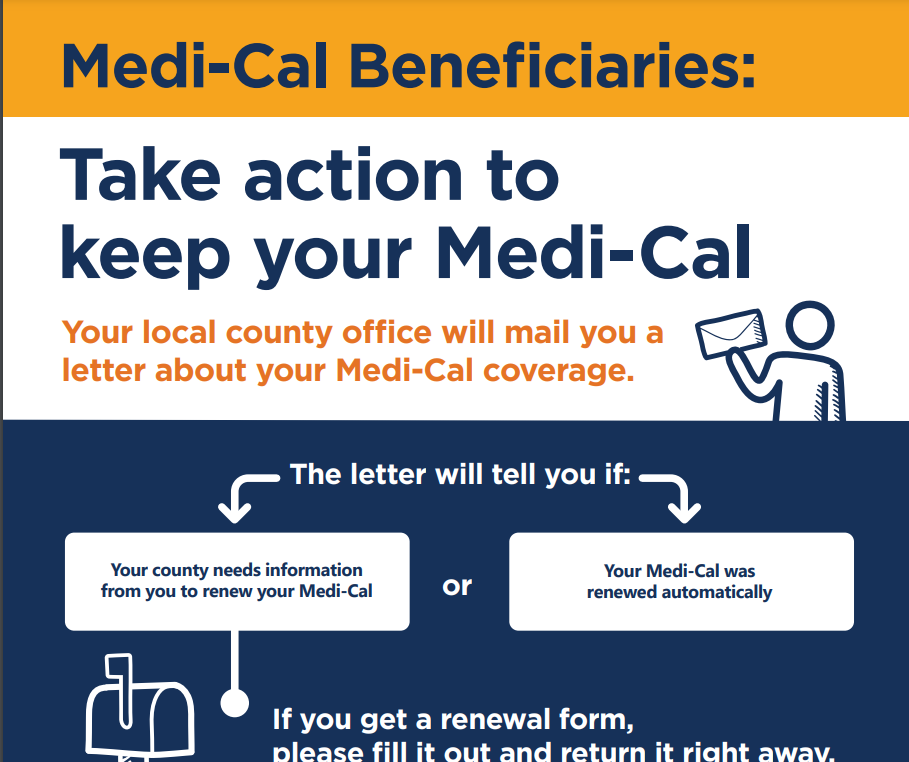Editorial: Ventura County’s risky pandemic transition

About a third of Californians, including 267,000 people in Ventura County alone, receive their healthcare through insurance provided by Medi-Cal, the state-federal program for low-income individuals and families.
Starting this month, tens of thousands of Ventura County beneficiaries and millions across the state, will lose that coverage — not because of a change in circumstance that altered their eligibility, but because of the return of a bureaucratic requirement that means missed paperwork could cost them their ability to see a doctor.
The reason is the expiration of a pandemic-inspired approach to enrollment. During those years when the spread of COVID-19 threatened to overwhelm emergency rooms, the federal government sensibly waived its requirement that recipients renew their participation annually. They automatically retained their coverage.
Now, the easing of COVID requirements has spread to the healthcare arena. One change this month is that masks are no longer required of patients and visitors in healthcare settings. Much more significant is the return of annual renewal requirements for Medi-Cal patients.
Those who don’t receive or don’t respond to requests for paperwork will be bumped off the plan. That will mean a loss of access to preventive care, loss of ability to be seen or treated in clinic settings, and a corresponding increase in the number of patients who turn as a last resort to the one place where they cannot be turned away — hospital emergency departments.
More: Potential loss of Medi-Cal for thousands in Ventura County pushes massive outreach
Given that this is a program that serves the poor (adults with an income of less than $20,121, a single parent with one child and an income of less than $27,214, a family of four with an income of less than $41,400), the paperwork process can be challenging. Many do not have stable housing and frequently change addresses. Access to the Internet can be spotty or non-existent. Language barriers are not uncommon.
The inevitable result is that thousands — some estimate as many as 50,000 in Ventura County over the next 14 months — will lose their access to healthcare.
It is encouraging to note that the state Department of Health Care Services, the county Human Services Agency and nonprofit advocates are partnering in a large-scale effort to spread the word to minimize the number of families who will fall through the bureaucratic cracks.
Aggressive outreach is essential because, as a representative of the Camarillo-based Interface Children and Family Services told The Star, “It doesn’t seem like people really understand what is going on.”
There are thousands of individual reasons to be concerned about a wholesale loss of access to healthcare in the community — untreated ear infections in children, cases of asthma that go undiagnosed, pregnancy complications that are left unnoticed, chronic diseases that are not identified until serious complications set in, a toll of unnecessary pain and suffering.
But there is also a reason for personal concern among those with private insurance or on Medicare, and it is the same reason that inspired the pandemic exception to the mandated eligibility renewals. Inevitably, many who are unable to receive care elsewhere will find themselves in already stretched emergency rooms — imperiling the ability of all to receive timely treatment in a time of need.
There is good reason to help spread the word to family members, friends, co-workers, any of the 1 out of 3 Ventura County residents who rely on Medi-Cal to access healthcare. Tell them to go to KeepMediCalCoverage.org to update contact information and find out how to renew.
There’s no reason the community’s health should be imperiled by a pandemic of paperwork.
This article originally appeared on Ventura County Star: Editorial: Ventura County’s risky pandemic transition

